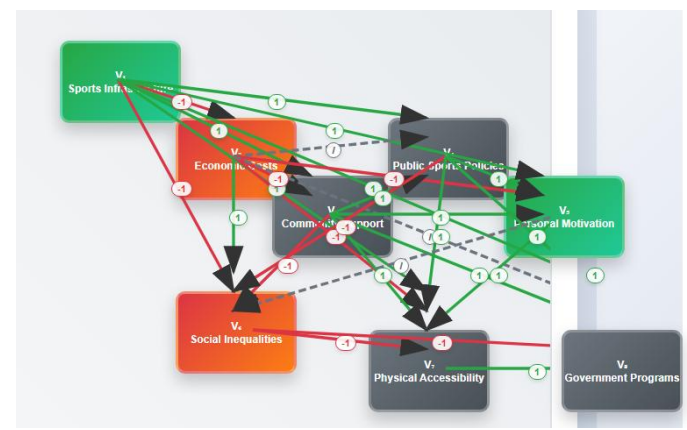Modeling barriers and facilitators of access to sport through neutrosophic cognitive maps
Keywords:
Barriers, facilitators, access, sport, cognitive maps, neutrosophicsAbstract
This study's objective was to assess barriers and facilitators to access to sport utilizing neutrosophic cognitive maps to identify variables contributing to sports participation. Therefore, a qualitative neutrosophic theory approach was taken—this approach allows for mapping of such relationships even in uncertain situations. Data collection efforts consisted of expert interviews and surveys of current and former athletes, which were analyzed to create cognitive maps representing interdependent positional relationships of variables such as resources, motivation, and governmental resources. Among the major results are that the most prominent barriers are lack of adequate resources, fiscal resources, and socioeconomic equity while the most prominent facilitators are community support, governmental resources, and intrinsic motivation. Ultimately, the cognitive maps illustrate a fluid certainty of interdependence among such factors, with access, both in a physical and financial sense, being the most important findings. Therefore, this research will assist in making more informed sports policy decisions to reduce inequity of access to sports while improving infrastructure quality and utilizing neutrosophic cognitive mapping as a practical means for more effectively designed intervention and more sustainable access to sport in the future—impacting sociological status and public health findings.
Downloads

Downloads
Published
License
Copyright (c) 2025 Neutrosophic Sets and Systems

This work is licensed under a Creative Commons Attribution 4.0 International License.






